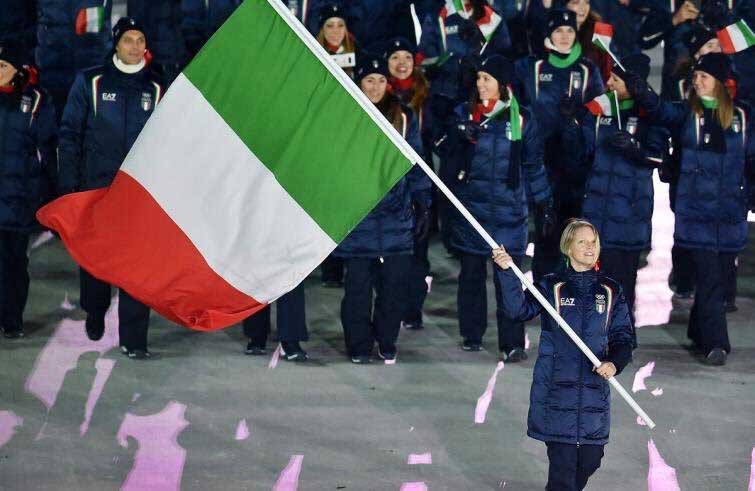Reporting from Beijing, China – Beijing’s historical bid to become the first city to host both the Olympic Winter and Summer Games reached a milestone in the capital Saturday as the International Olympic Committee’s (IOC) Evaluation Commission wrapped up final meetings in the capital.

“I can say that the Olympic spirit that Beijing and China showed the world in 2008 is alive and as strong as ever,” Commission Chair Alexander Zhukov said.
“Our visit has confirmed that Beijing is capable of hosting successful Olympic Winter Games in 2022.”
The five-day visit included meetings to review the contents of Beijing’s three-volume bid book, and site visits to venues in the Beijing, Yanqing and Zhangjiakou clusters that make up the Chinese master plan to host the Games.
“I said at the start of the visit that we would probably have some difficult questions, I didn’t realize how many we would have,” Zhukov said as the closing ceremony Saturday morning at the Intercontinental Hotel in the Olympic Park.
Approximately 150 questions were asked of Beijing 2022 by international experts across the five days, and 15 themes were reviewed including a new one added as part of newly approved Agenda 2020.
Though all meetings were held behind closed doors, the Beijing 2022 team also faced tough questions from domestic and international media at daily briefings. Jiandong Zhang, Beijing Vice Mayor and Vice President of Beijing 2022, addressed questions regarding air pollution, human rights and the Free Tibet movement, transportation issues between clusters and the costs of Games-related projects.

The trip from the Beijing Olympic Village to the Zhangjiakou mountain cluster is currently in excess of three hours but one of the most critical components of the bid’s master plan is the implementation of a high speed bullet train linking all three clusters. The construction of this already planned rail line is due to begin this year with a 2019 targeted completion date, however no cost for the potentially risky project has been disclosed or discussed with the IOC, nor are further discussions about it planned. Chinese officials say that the construction is part of a previously planned national project and is unrelated to the bid.
“The high speed railway is just a part of … a big project not related to the Olympic Games,” Zhukov said indicating that the rail costs were not discussed.

Yet, the target of an Olympics is fixed which could increase the cost and risk of the project – and the risk to the Olympic stakeholder – even though China has been successfully delivering high speed rail projects in the past.
Concerns about the lack of snow in the Zhangjiakou mountain clusters that typically experience dry winters were brushed off by the IOC team. IOC Executive Director Christophe Dubi explained to reporters that cold temperatures and the plan to store water in reservoirs to make artificial snow would be effective to create ideal conditions for the Games.
The impact of the Agenda 2020 IOC reforms was clearly visible throughout the week, as it was when the IOC visited rival bid Almaty, Kazakhstan in February. Both teams said they enjoyed a more open, interactive dialog then what had been experienced in previous years resulting in more productivity.
When asked by GamesBids.com about the impact of Agenda 2020 and any possible bid changes, Anshun Wang, President of Beijing 2022 said “with regard to planning for the venues, there will be no major adjustments; we are going to make some minor adjustments if necessary.”
These adjustments will be sent to the IOC after further internal discussions with experts.
During the IOC visit to Almaty, venue changes that resulted in a budget savings of $550 million were made and then announced before the closing of the meetings.

In Beijing’s plans are venues that could create iconic settings during the Games. The Beijing 2008 Water Cube, fondly remembered for Michael Phelps’ epic eight gold medal performances, will be transformed to an Ice Cube to host curling. The Bird’s Nest National Stadium will again host opening and closing ceremonies and the Wukesong arena, host venue for Basketball in 2008, will receive ice hockey in 2022.
In the Zhangjiakou cluster, the Ski Jump will enjoy vistas featuring a restored section of the Great Wall of China while cross country skiers will ski alongside it during a portion of the course.
On Friday night, the teams enjoyed a gala dinner and celebration at the National Centre for the Performing Arts – commonly referred to as “the egg”.
The Beijing 2022 team has an April 11 deadline to provide follow-up materials to the IOC, including any changes, after which Zhukov’s Commission will prepare an evaluation report and share it with other voting IOC members on June 1. A week later both Beijing and Almaty will make presentations at an all members IOC technical session to be held in Lausanne.
The IOC will gather again at its 128th Session in Kuala Lumpur, Malaysia on July 31 to elect the host of the 2022 Olympic Winter Games by secret ballot.
Read other news from this week’s Evaluation Commission visit:
Beijing 2022 Completes Site Visits From IOC
Beijing 2022 Athletes Will Compete in the Shadow of the Great Wall of China
IOC Evaluation Commission Inspects Beijing 2022 Mountain Venues
Beijing 2022 Defends Against Human Rights Critics
Beijing 2022 Highlights Legacy, Infrastructure and Reliability To IOC As Inspection Begins


